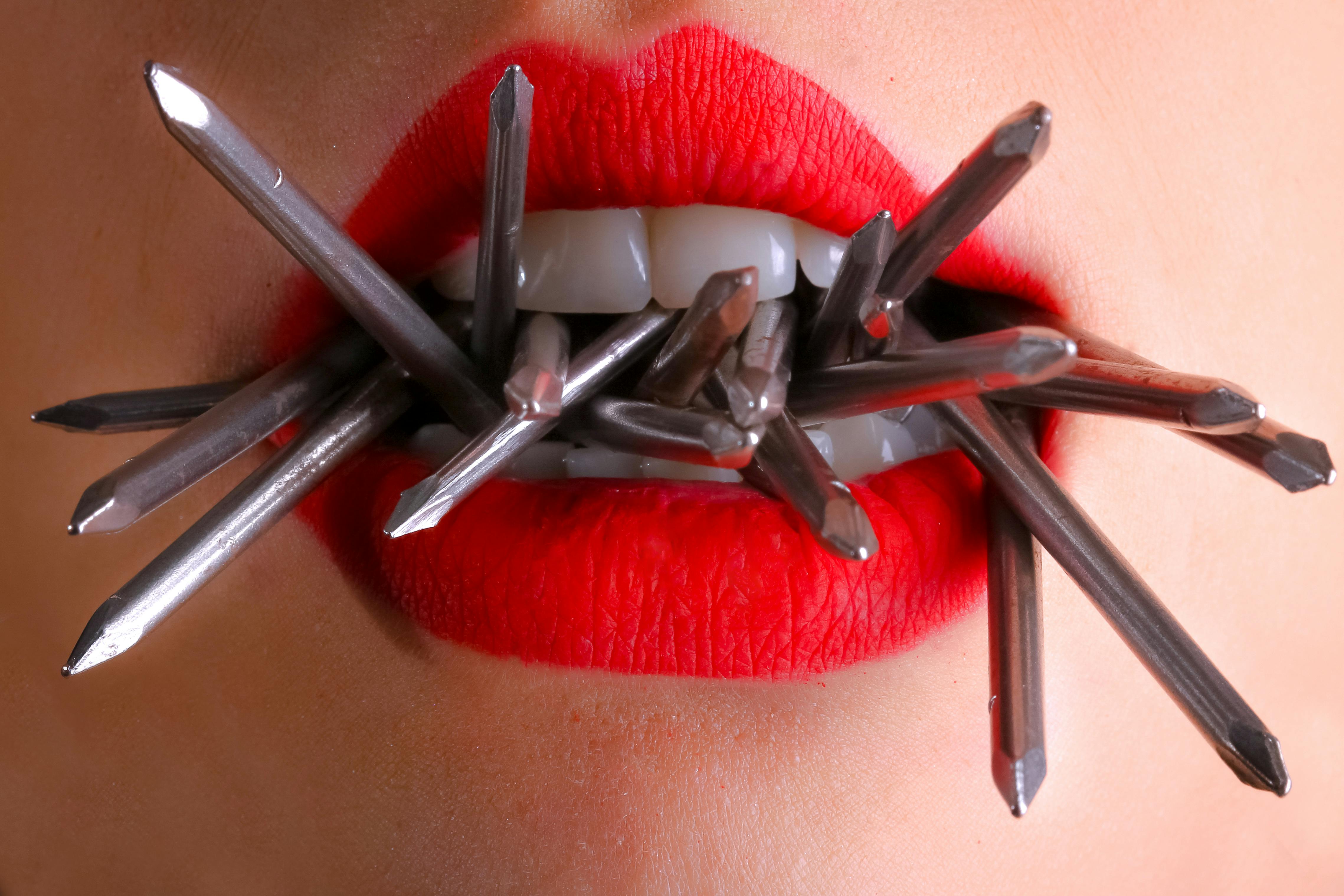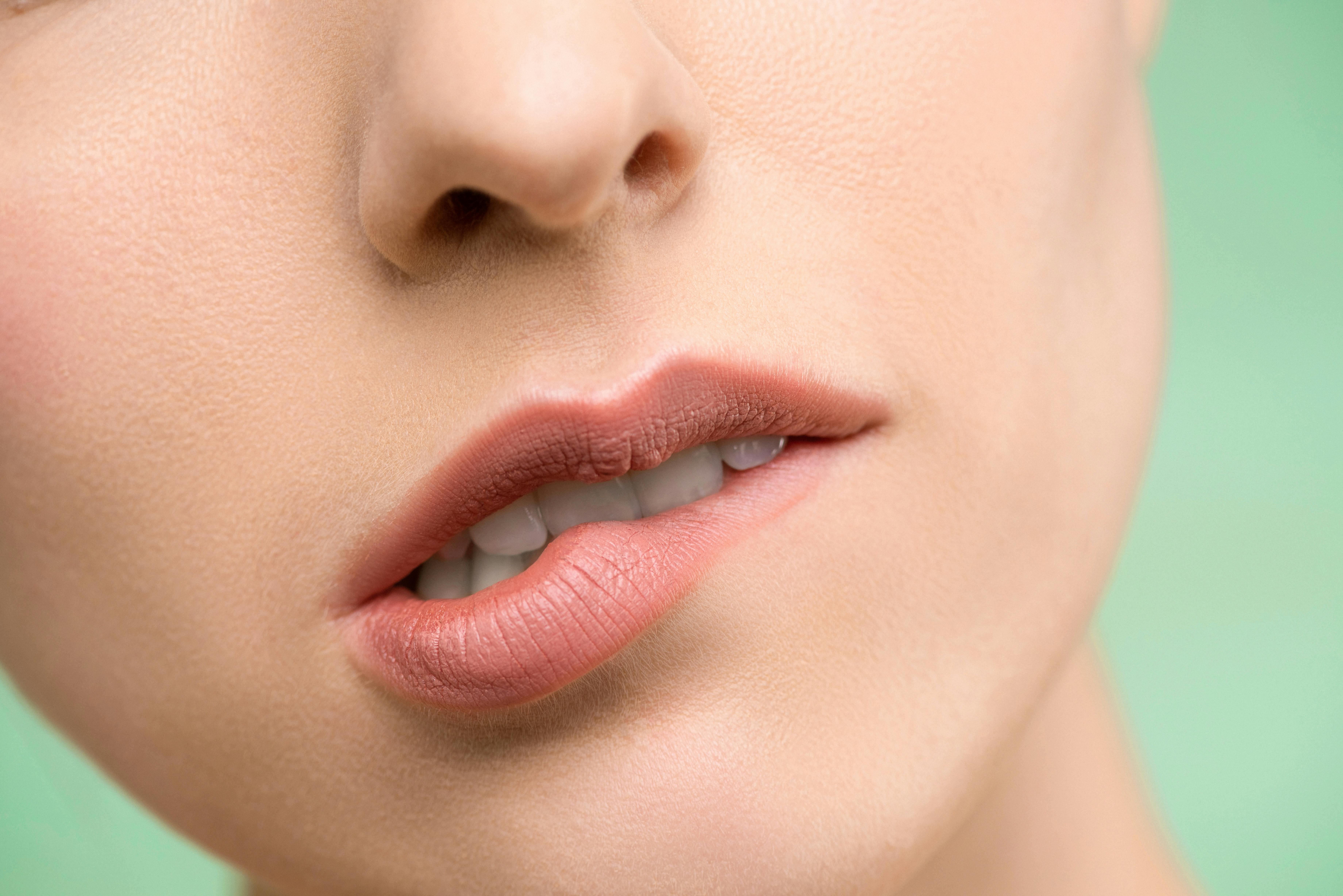Biting your nails is a common habit that many of us have, but did you know that it could be bad for your teeth? Biting your nails can damage the enamel on your teeth, and can even lead to gum recession. This article will discuss the effects of nail biting on dental health, and how to stop this habit.Yes, biting your nails can be bad for your teeth. Biting your nails can damage the enamel on the surface of your teeth, which can lead to cavities and other oral health issues. Additionally, biting your nails can cause you to bite too hard on other areas of the mouth, such as the gums and cheeks, which can also cause oral health problems.
Is Nail Biting Harmful To Oral Health?
Nail biting is a common habit among children and adults alike, but it can cause more harm than we think. Nail biting can not only damage the nails, but also have a negative impact on oral health. Bacteria from the nails can be transferred to the mouth, leading to an increased risk of oral infections. In addition, nail biting can cause teeth to become misaligned or fractured, as well as lead to gum recession and inflammation. It can also cause painful sores in the mouth, which may take weeks to heal.
In order to prevent these potential problems from occurring, it is important to practice good oral hygiene habits such as brushing and flossing regularly and avoiding sugary foods and drinks. Additionally, if you or your child are struggling with nail biting, there are several strategies that can help reduce this habit: keeping nails trimmed short; using bitter-tasting nail polishes; wearing gloves or bandages while sleeping; and seeking professional help if needed.
By taking the necessary steps to reduce nail biting and practicing proper oral hygiene habits, you can help protect your teeth and gums from any potential harm caused by this common habit.
What Are The Risks Of Biting Your Nails?
Biting your nails can be a very bad habit with long-term effects. It can cause damage to the nail itself, as well as to the skin around the nail. Biting nails can lead to bacterial and fungal infections, including paronychia, which is an infection of the skin around the nail. Chronic nail biting can also lead to bleeding and inflammation of the cuticles and soft tissue surrounding the nails.
The bacteria that live under your fingernails can cause stomach illnesses if ingested while biting your nails. This is because when you bite your nails, you are putting those bacteria into your mouth. You may also be at risk for passing on bacteria or viruses to another person if you bite your nails and then shake hands or touch someone else without washing your hands first.
In addition, nail biting can cause dental problems such as chipped or cracked teeth due to repeated pressure from biting down on hard items such as nails or pencils. The constant wetness created by saliva when you bite your nails also creates an environment for bacteria to grow, which can cause bad breath and other dental issues over time.
Finally, chronic nail biting can lead to emotional issues such as anxiety and low self-esteem due to embarrassment over one’s appearance or feeling of being judged by others for having bitten nails. If left untreated, this could lead to more serious mental health issues such as depression or body dysmorphic disorder (BDD).
How Does Nail Biting Impact Teeth?
Nail biting is a common habit that can have serious consequences for your teeth. It is often an unconscious habit, but it can damage your teeth, gums, and the tissue around the nails. Biting your nails can cause chips in the enamel of your teeth, as well as cause the edges of your teeth to become weak and brittle. It can also lead to gum disease and infection in the mouth. The bacteria from nail biting can get lodged in the gum line, which can cause gum recession and periodontal disease. Additionally, biting your nails can lead to a misaligned bite or temporomandibular joint (TMJ) disorder due to overuse of certain muscles in the face when biting down on nails.
Nail biting can also cause bad breath and an unpleasant taste in your mouth. This is because when you bite your nails, you are introducing bacteria into your mouth that would not have been there otherwise. As the bacteria grows, it produces a foul smell that lingers in your mouth and causes bad breath. Poor oral hygiene practices associated with nail biting may also contribute to this problem.
Overall, nail biting is a habit that should be avoided at all costs as it can result in numerous dental problems. Brittle teeth, uneven bite patterns, gum disease, infection, and bad breath are just some of the risks associated with nail biting. If you are a nail biter or know someone who is, it’s important to seek professional help so that these problems don’t develop over time.
Nail Biting and Dental Problems
Nail biting is a common habit, but it can put your dental health at risk. It can lead to a number of dental problems, such as chipped teeth, fractures of the enamel, and uneven wear of the tooth surface. Nail biting can also cause jaw pain and temporomandibular joint (TMJ) disorders. In addition, it can lead to an increased risk of infection because bacteria from the nails are introduced into the mouth when you bite your nails. The bacteria can cause gingivitis, which is inflammation of the gums, as well as periodontal disease, which is an infection of the gum tissue that can eventually lead to tooth loss. Nail biting can also cause changes to your bite and alignment of your teeth, leading to orthodontic problems.
It is important to break the nail-biting habit in order to maintain good oral health. If you have already experienced dental damage from nail biting, visit your dentist for treatment options such as fillings or crowns to repair any damage and restore your smile.

Are There Any Long-Term Effects Of Nail Biting On Teeth?
Nail biting can be a difficult habit to break, but it can have long-term effects on your teeth and overall oral health. It can lead to an increased risk of decay, gum disease, and tooth loss. It can also cause wear and tear on the enamel of your teeth, which can result in sensitivity and pain. Nail biting can also cause damage to the jaw joint, leading to problems such as temporomandibular joint (TMJ) disorder.
In addition to the potential damage that nail biting can have on your teeth, it is also important to consider the risk of infection from bacteria that live under your nails. If you bite your nails, you are exposing yourself to these bacteria which can then enter your mouth and potentially lead to infection.
It is important to be aware of the potential long-term effects of nail biting on your teeth so that you are able to take steps towards breaking this habit before any lasting damage occurs. If you are struggling with nail biting, it is a good idea to speak with a healthcare professional such as a dentist or doctor about ways in which you may be able to manage this behavior.
What Can Be Done To Stop Nail Biting Habits?
Nail biting is a common nervous habit that many people struggle to break. It can be a difficult habit to break and may take some time and effort to succeed. However, it is possible to stop nail biting with the right approaches.
The first step is to identify the triggers that lead to nail biting. This could include boredom, stress, or anxiety. Once you know what triggers your nail biting, you can try to avoid these situations as much as possible. Additionally, it is important to have an activity you can do instead of nail biting when these triggers arise. This could include playing with a stress ball, going for a walk, or reading a book.
It may also help to keep your nails trimmed short and neatly filed in order to reduce the urge to bite them. Additionally, using bitter-tasting polishes or wraps around your nails can help deter you from nail biting when those urges come up.
Finally, it is important to remember that breaking any habit takes time and patience. The key is not to get frustrated if you slip back into old habits or find yourself struggling with them again. Instead, be kind and patient with yourself and keep working on building new habits until they become second nature. With patience and dedication, it is possible for anyone to break their nail biting habit for good!
Benefits of Quitting Nail Biting
Quitting nail biting can bring about a number of positive changes in your life. Not only will it improve your physical health, but it will also help to boost your confidence and self-esteem. Here are some of the key benefits that you may experience when you stop biting your nails:
Improved Appearance
When you stop biting your nails, they will have a chance to grow out longer and stronger. This can make them look better and help to add to your overall appearance. You may also notice that the skin around the nails looks healthier and less damaged. In addition, nail biting can cause discoloration on the fingers, so quitting this habit can help to restore their natural color.
Reduced Risk of Infection
By quitting nail biting, you can reduce the risk of infection in both the nails and the skin around them. This is because when you bite your nails, you are more likely to introduce bacteria or other pathogens into the body which could lead to infection. Therefore, it is important to keep your hands clean and avoid putting them in contact with germs as much as possible.
Improved Self-Esteem
Quitting nail biting can also help to improve your self-esteem. This is because it is often seen as an unattractive habit which can make people feel embarrassed or ashamed. By stopping this behavior, you will be able to feel more comfortable in social situations and boost your confidence levels.
Less Stress
Nail biting is often caused by stress or anxiety, so by quitting this habit you may find that it helps to reduce overall stress levels over time. This is because when you are not focused on this behavior, then there is less chance for stress or worries to build up in your mind. Therefore, taking a break from nail biting can be an effective way of managing stress levels.

Conclusion
Biting your nails can be a very bad habit for your teeth. It can damage the enamel and increase your risk of developing cavities or gum disease. If you have an existing dental health problem, nail biting can also worsen it. To help break the habit, try to replace it with a healthier activity such as chewing sugar-free gum or snacking on crunchy vegetables. You should also talk to your dentist about any underlying dental health issues and get advice on how to address them. With some determination and self-discipline, you can break the habit of nail biting and maintain healthy teeth and gums.
Overall, biting your nails can lead to dental problems if it is not stopped. Although it may seem like a harmless habit, it can cause serious damage to your teeth in the long run. Therefore, it is important to take steps to stop biting your nails in order to keep your teeth healthy and strong.
